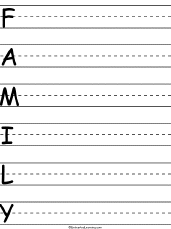1) Você tem acesso à internet e com qual frequência? ( De onde? Escola, casa, trabalho, lan houses etc)
2) Quais seus conhecimentos em informática? Assinale.
( ) Navego na Internet sem problemas
( ) Consigo baixar arquivos da Internet para meu computador
( ) Envio e-mails
( ) Anexo e abro mensagens em anexo de e-mails
( ) Trabalho com programas de edição de textos como Word
( ) Participo de redes sociais, por exemplo, orkut, facebook, tweeter, etc
( ) Uso MSN
( ) Navego em salas de bate-papo
3) Onde e quem tem acesso a internet? Quem gosta de se comunicar virtualmente? Quem porventura não sabe usar o computador, etc. ?
4) Conhecem e gostam de sites de relacionamento? Por exemplo: Vox Namoro, Tagged etc.
5) Quais são os pontos positivos e negativos dos sites de relacionamento, afinal comunicamos com pessoas desconhecidas?
6) Complete o perfil e sorteie para um apresentar o outro. Ainda, através de pistas, o grupo adivinha de quem é o perfil. Cole no caderno.
7) Formem grupos. Já com o texto em mãos, cada aluno do grupo, passe os olhos pelo o blog impresso e observe as imagens, títulos , palavras cognatas e conhecidas, etc para saber quais os aspectos que cada um de vocês precisa para produção na avaliação final do projeto. Lembrem-se das estratégias de leitura.
8) Voltem ao texto e grifem as palavras cognatas, conhecidas, repetidas.
9) Releiam agora com mais atenção e respondam as questões a seguir:
a) Quem escreveu este gênero textual?
b) Com que finalidade? (o porquê de sua produção)
c) Onde?
d) Quando?
e) Como?
f) Com base em que informações?
g) Quem lê esse gênero? (quem são os interlocutores na interação discursiva)
h) Onde circula? (em qual suporte este gênero circula)
i) Qual é o assunto/temática do blog?
j) É interessante a temática? Por quê? Explique.
k) As imagens estão de acordo com o assunto abordado?
l) Na sua opinião, se você fosse o blogueiro (autor) do blog, o que mudaria e não?
Por quê? Comente.
m) A linguagem utilizada na escrita dificultou o seu entendimento sobre o assunto do blog? Explique.
Let’s go to Computer Lab to access the Blog My CEEBJA’S Students
Passem os olhos pelo Blog e conversem sobre o autor, as imagens, o assunto, enfim...sobre a página aberta. Observem que há alguns gêneros textuais.
Não se esqueçam das estratégias de leitura durante a realização das atividades. Além disso, saibam que estarei ao lado de vocês, mediando e dando suporte para que sintam seguros em relação à leitura dos textos
Click on this link:
http://weblogs.about.com/od/startingablog/p/WhatIsABlog.htm and answer the following questions.
Activity
1) What is a blog?
2) Traditionally, blogs were used as something like an online diary. But now How are blogs used? Give some examples about them.
3) What good is a blog to you?









